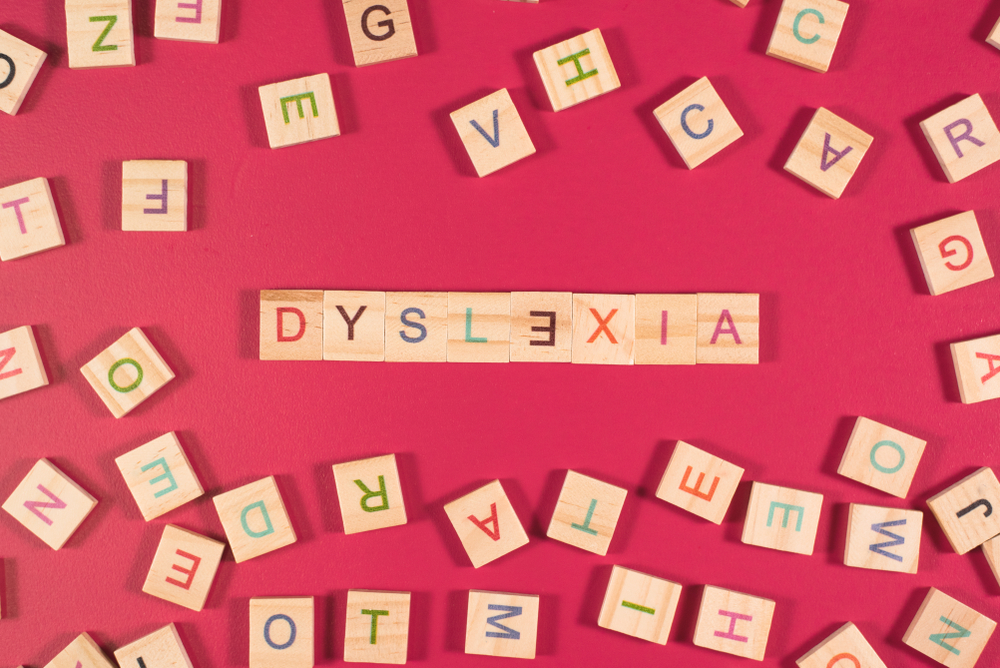Shape Recognition Easy Worksheets
24 filtered results
-
From - To
Discover our engaging "Shape Recognition Easy Worksheets" designed to make learning fun for young children! These expertly crafted printables help kids identify and name basic shapes like circles, squares, triangles, and more. Perfect for preschool and kindergarten students, our worksheets build essential early geometry skills through interactive activities and charming illustrations. Children will enjoy connecting dots, coloring shapes, and matching exercises that reinforce their understanding. Whether used at home or in the classroom, these resources provide a solid foundation in shape recognition, boosting confidence and preparing young learners for more advanced concepts. Unlock your child's potential today!
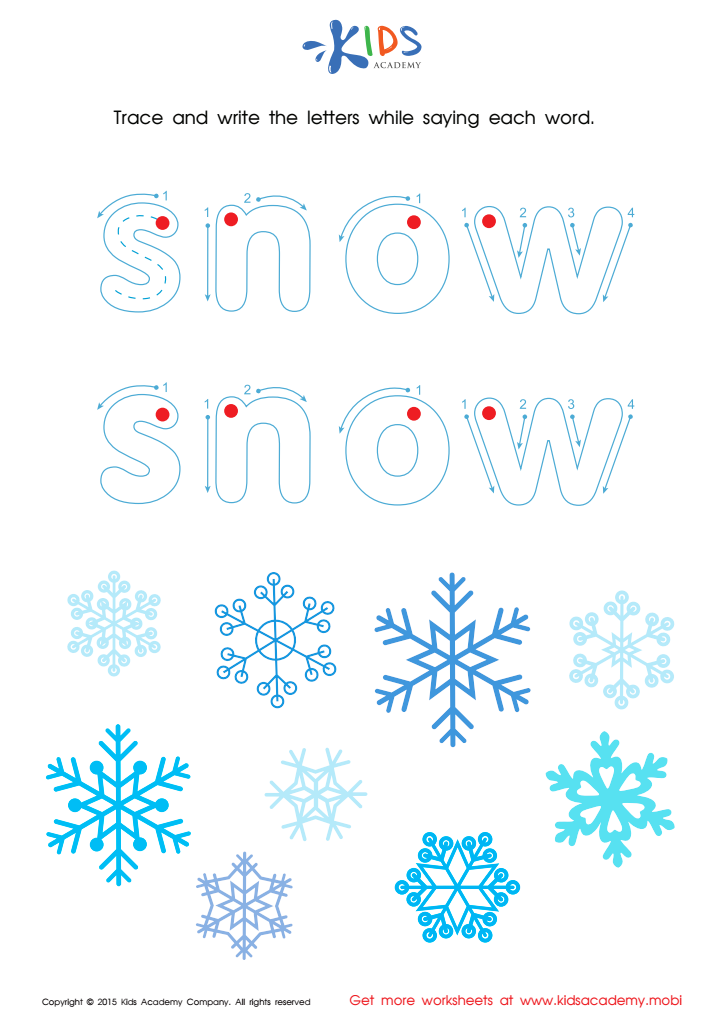

Snowflake Tracing Winter Words Worksheet
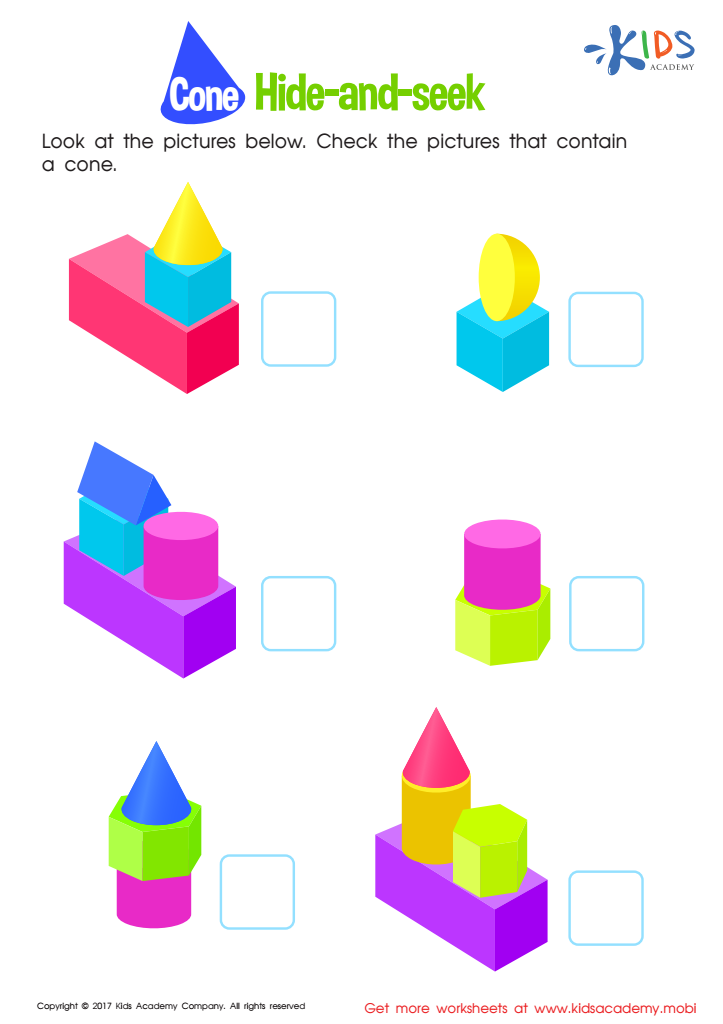

Cone Hide-and-Seek Worksheet
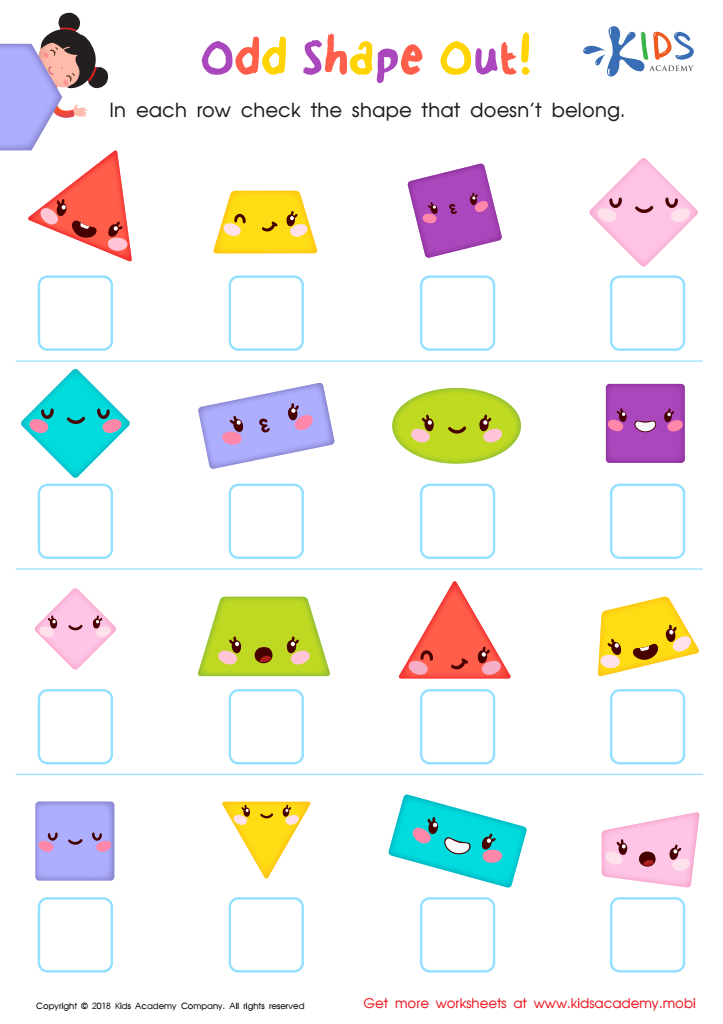

Odd Shape Out Worksheet for Grade 3
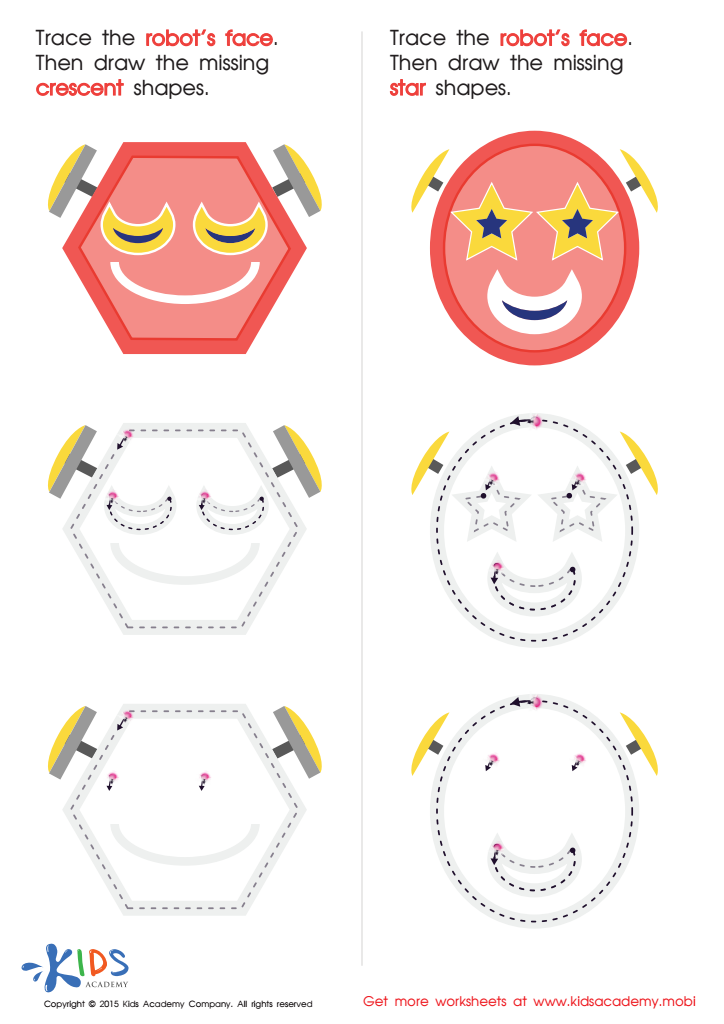

Composing a Robot's Face of Crescents And Stars Worksheet
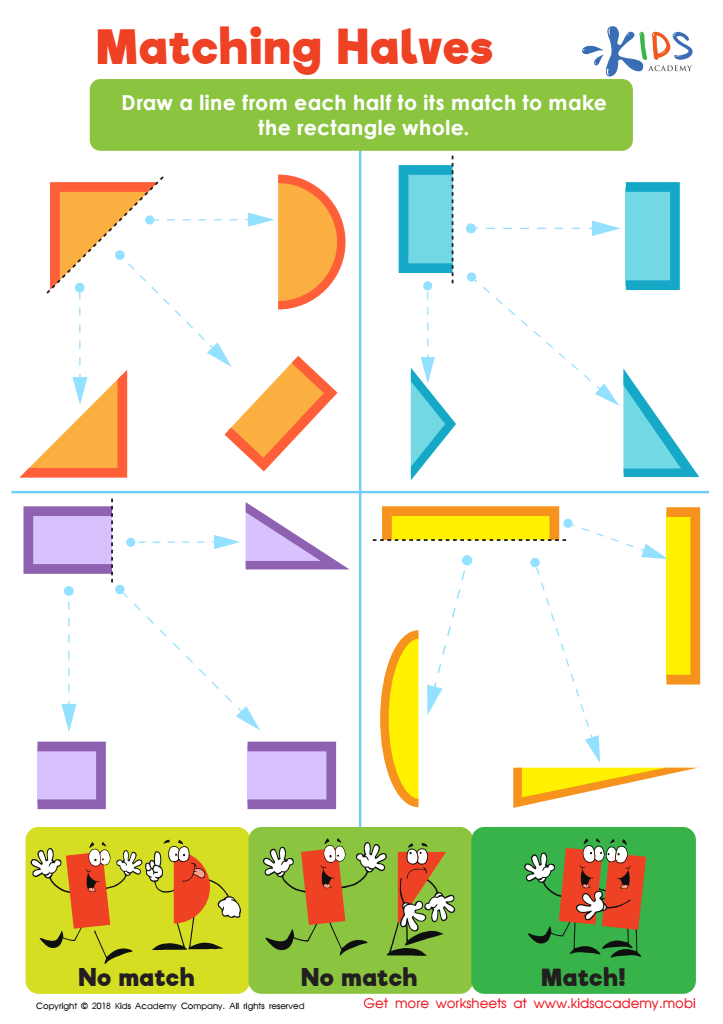

Matching Halves Worksheet
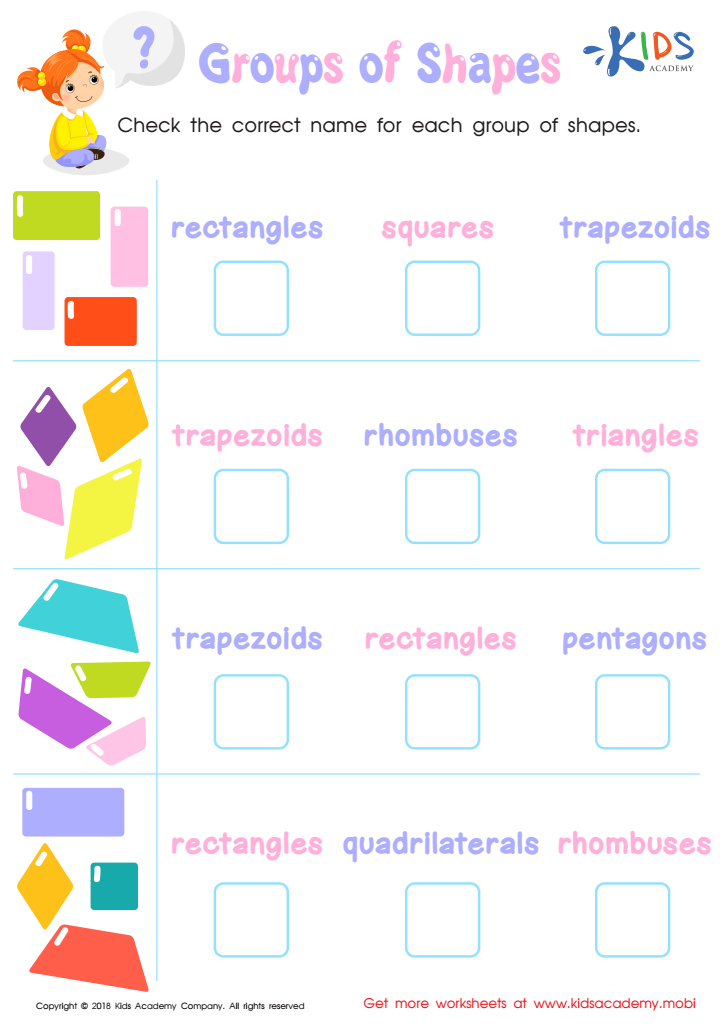

Groups of Shapes Worksheet


Faces of 3D Shapes Worksheet
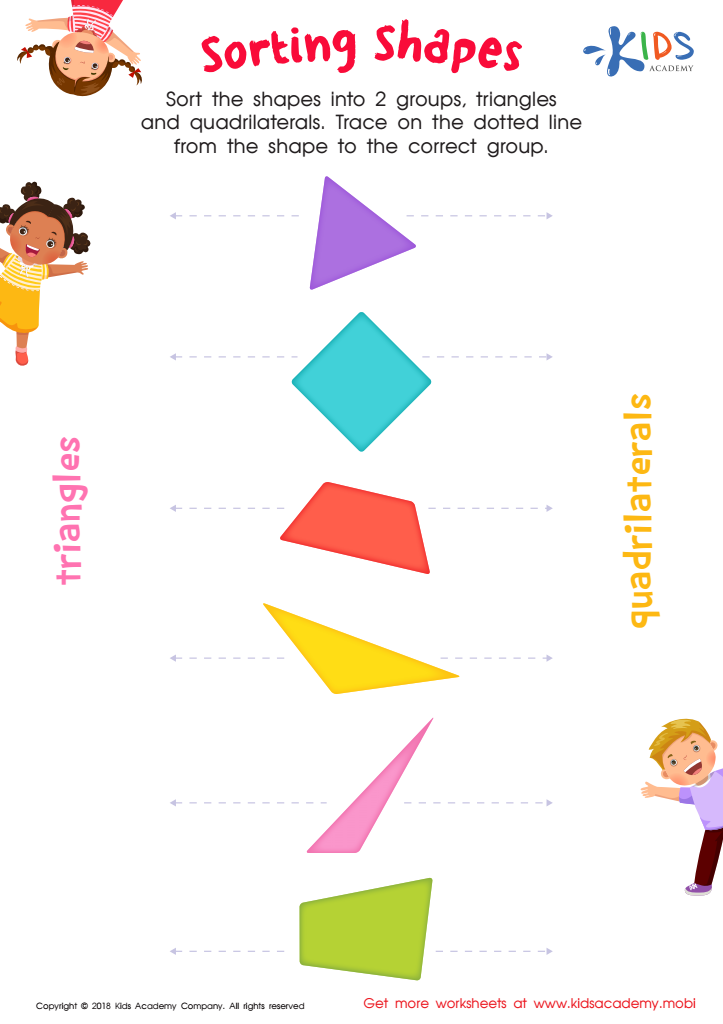

Sorting Shapes Worksheet
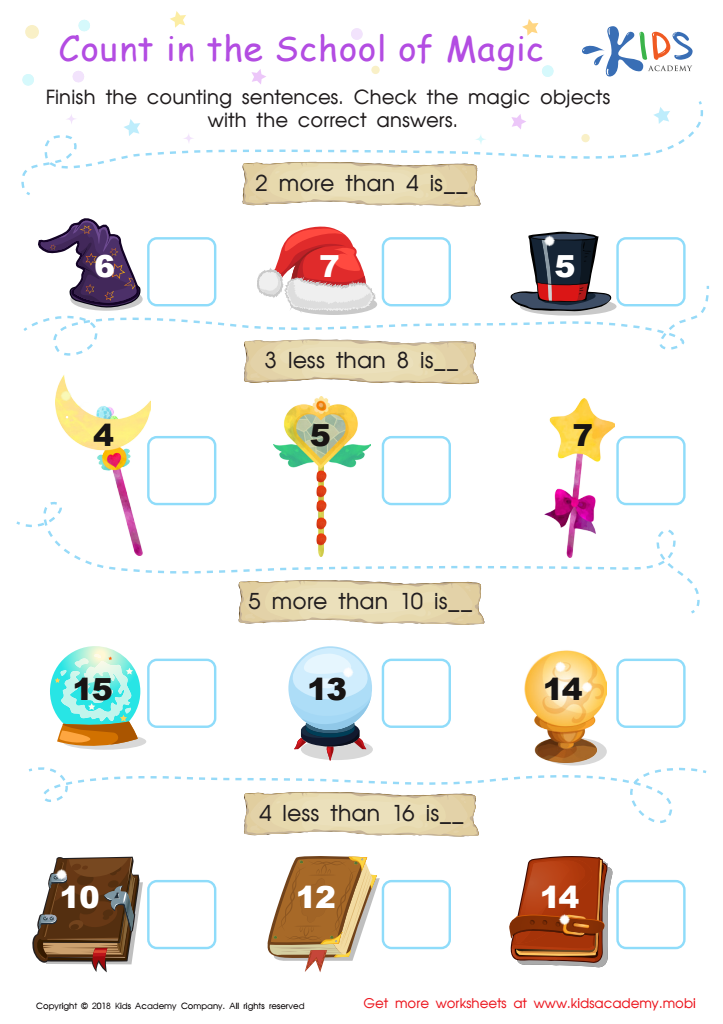

Count in the School of Magic Worksheet
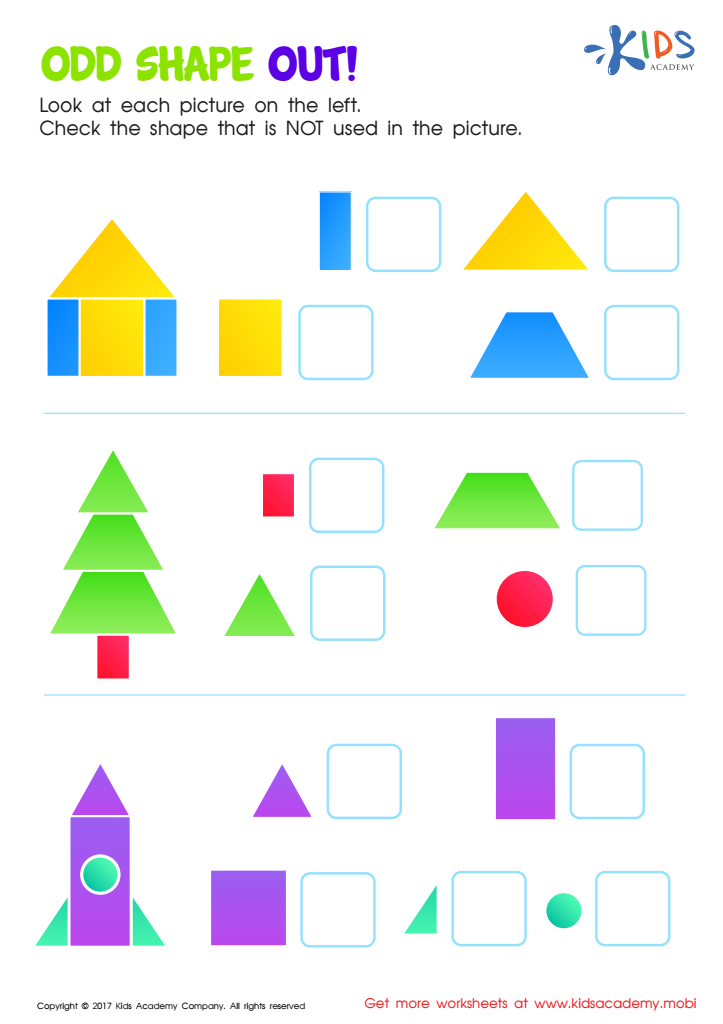

Odd Shape Out Worksheet for Grade 1
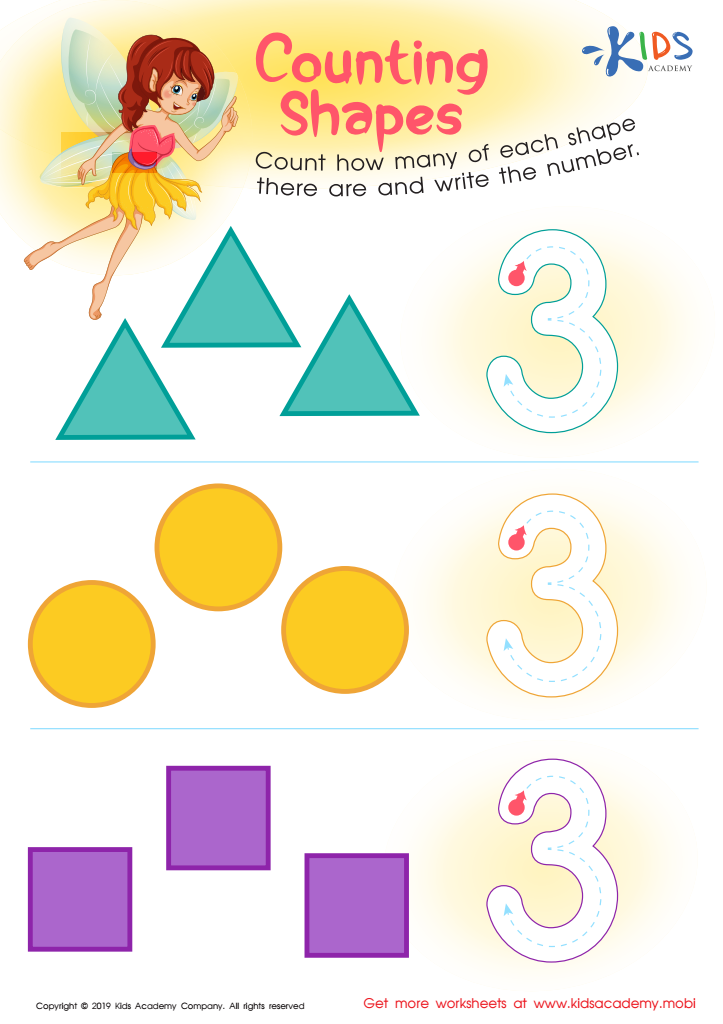

Counting Shapes Worksheet
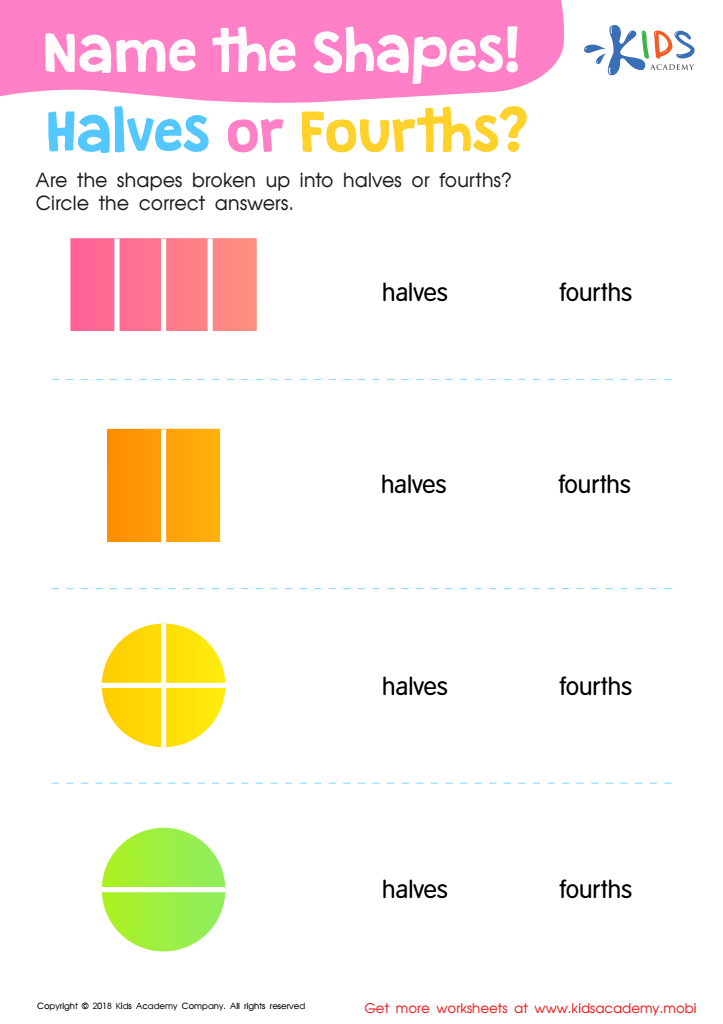

Name the Shapes Halves or Fourths? Worksheet
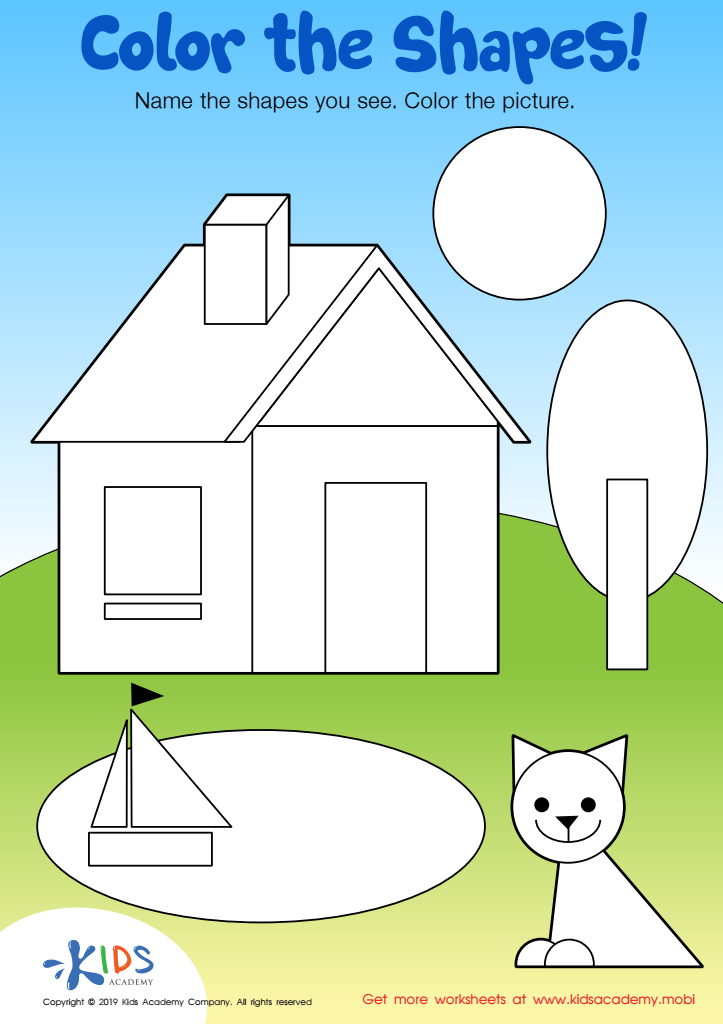

Color the Shapes Worksheet
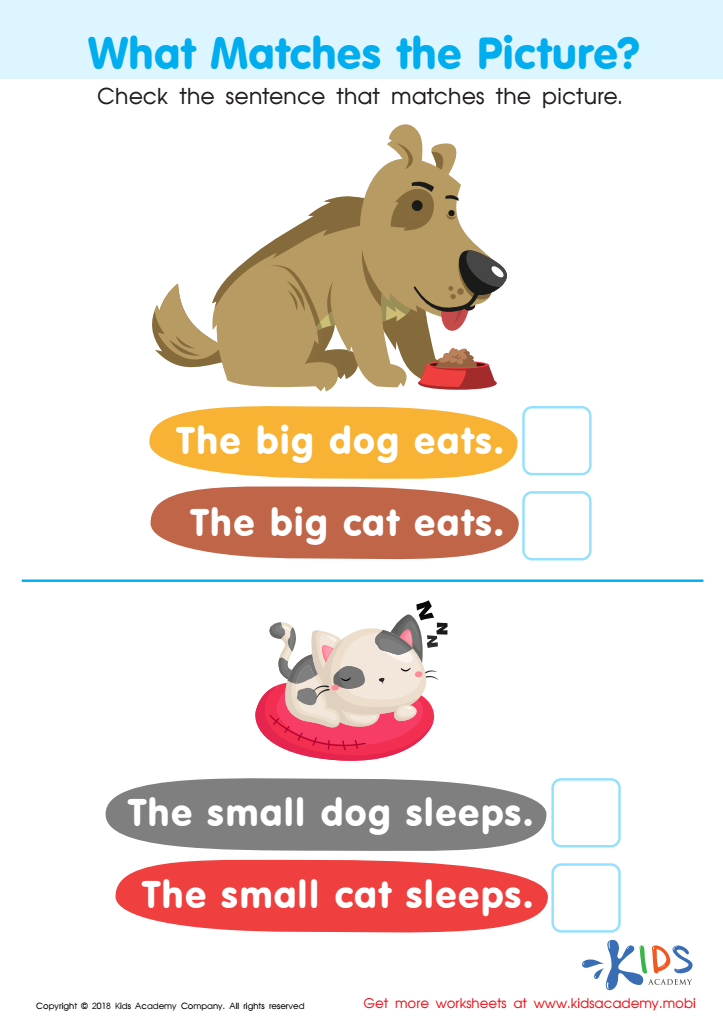

What Matches the Picture? Worksheet
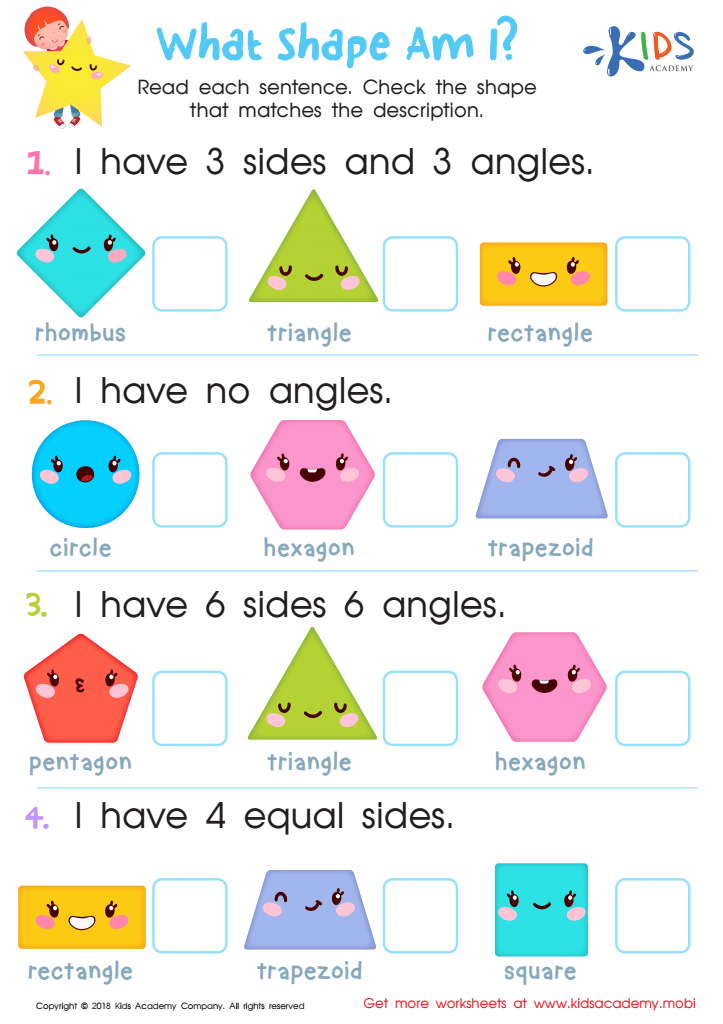

What Shape Am I? Worksheet
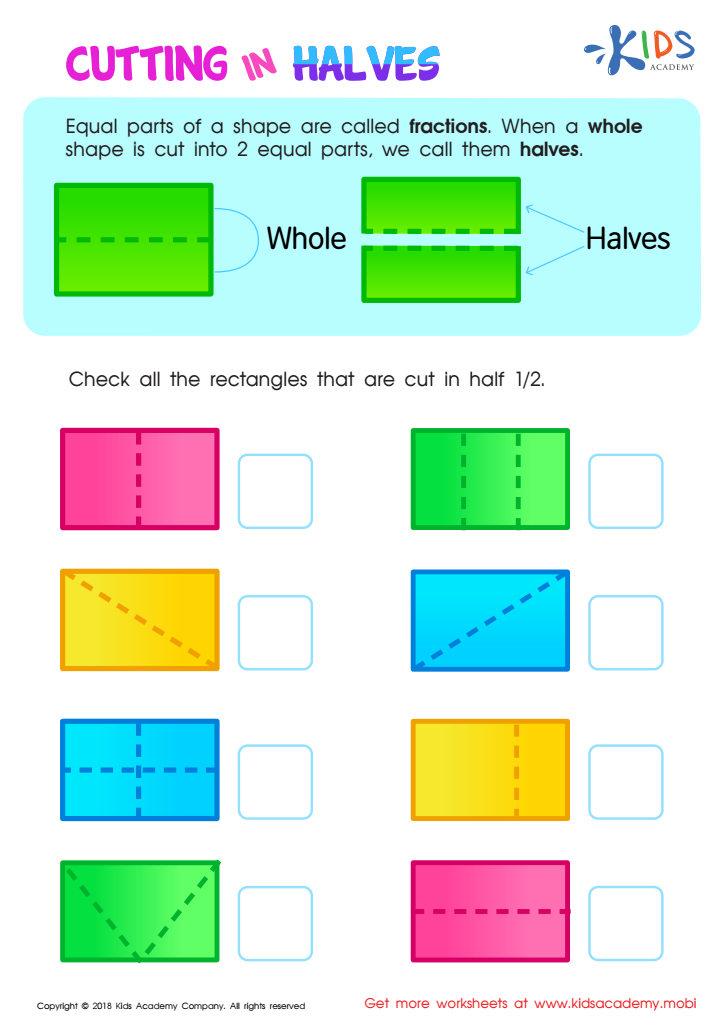

Cutting in Halves Worksheet
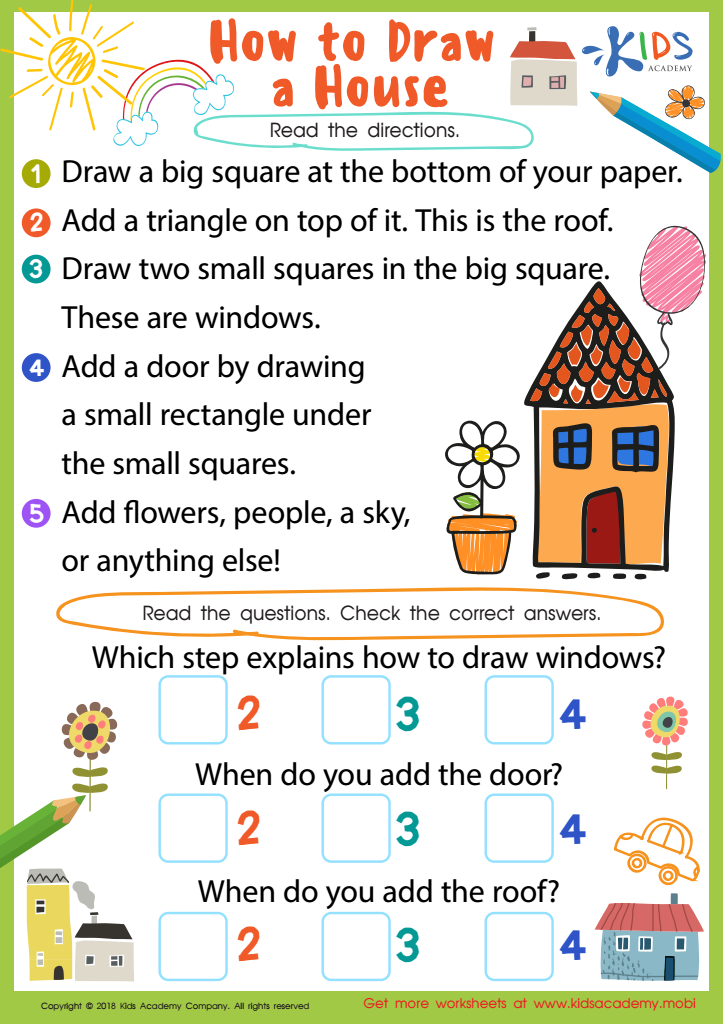

How to Draw House Worksheet
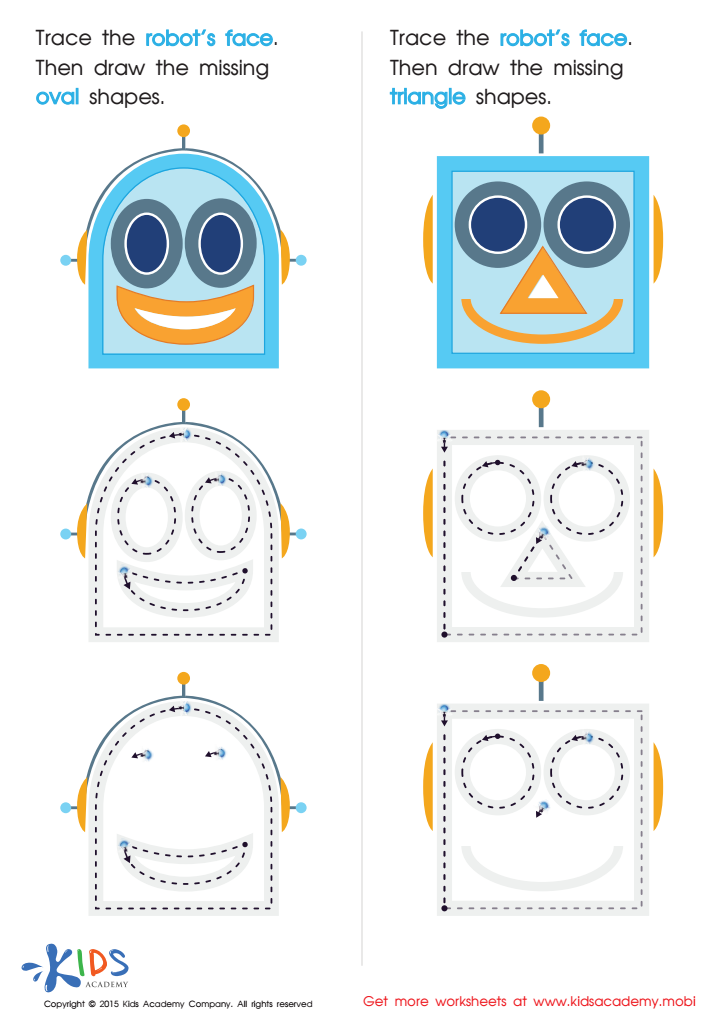

Drawing Ovals And Triangles with Fun Printable
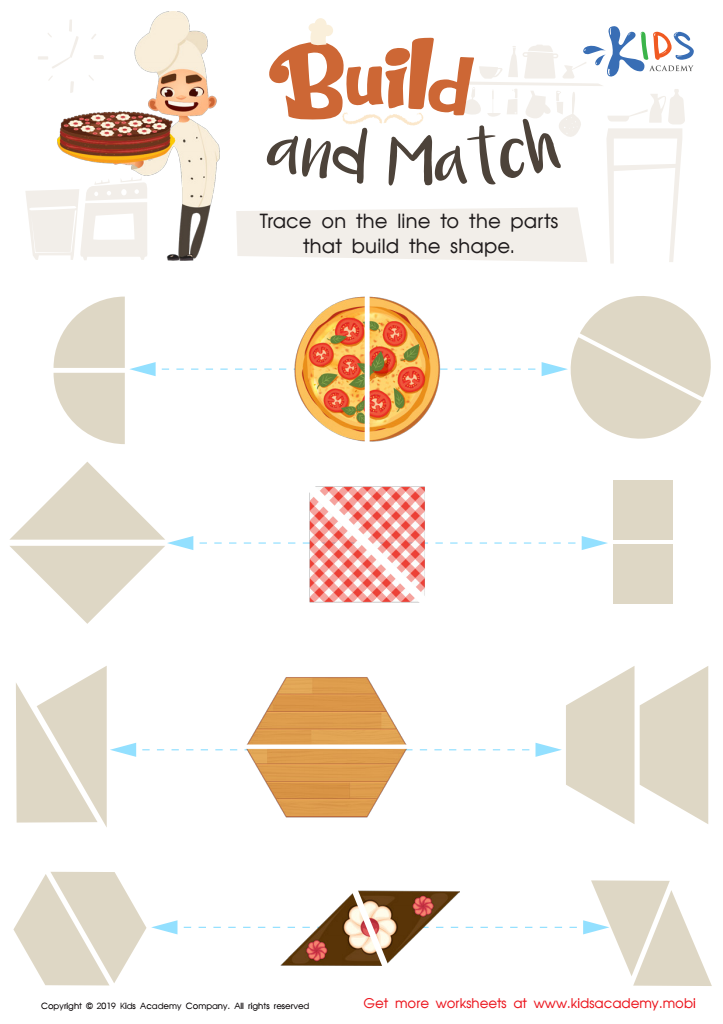

Build and Match Worksheet
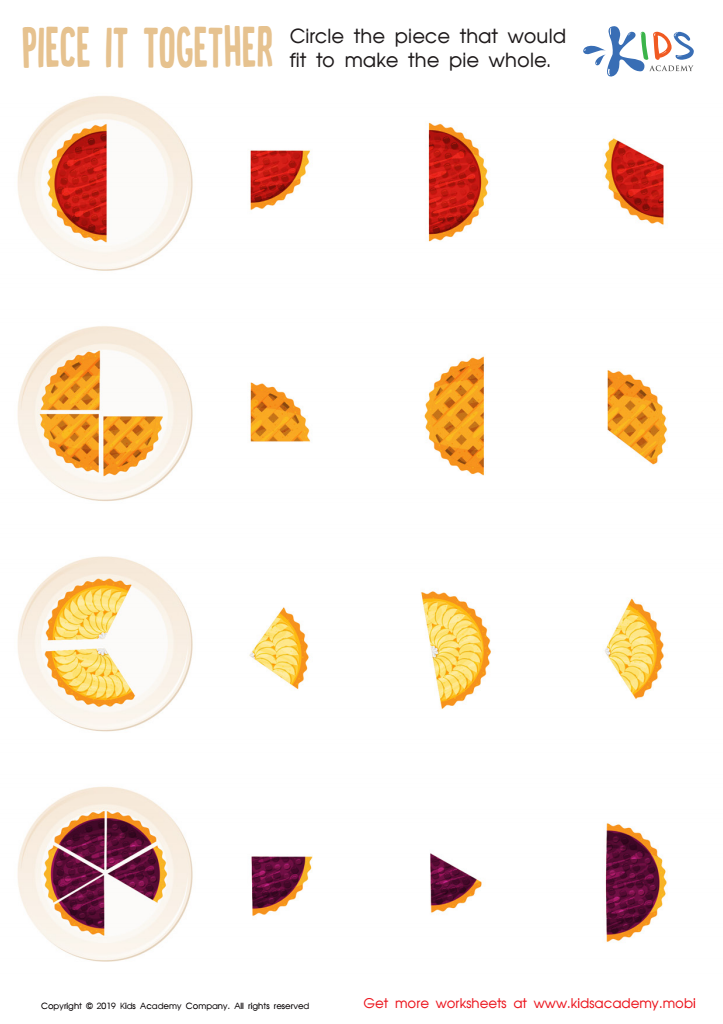

Piece it together Worksheet
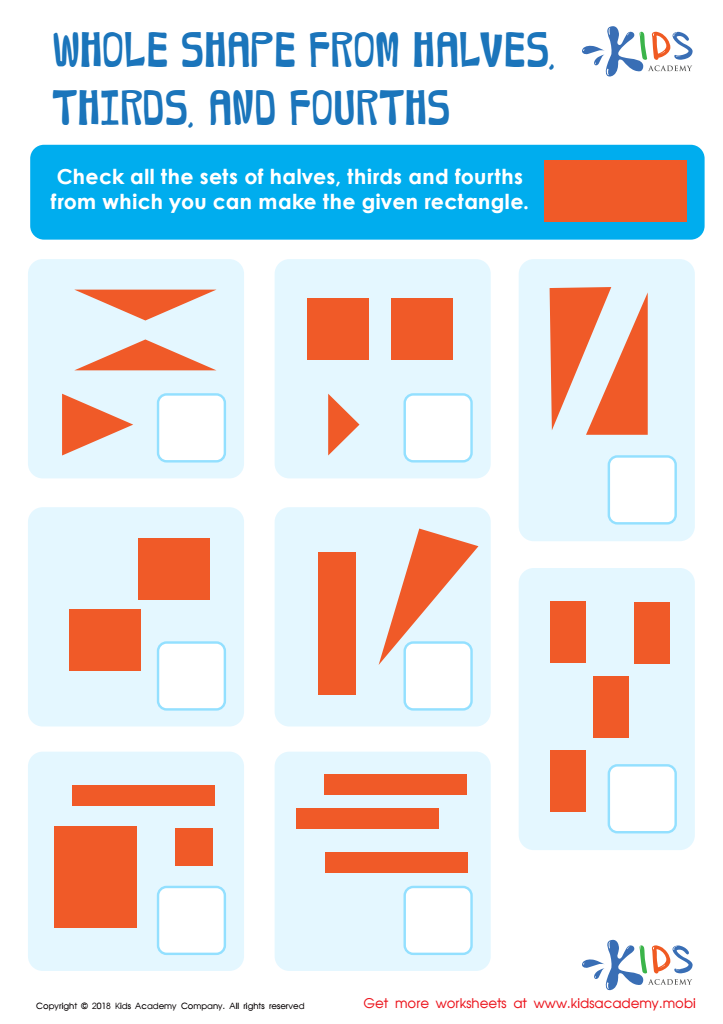

Whole Shape from Halves, Thirds and Fourths Worksheet
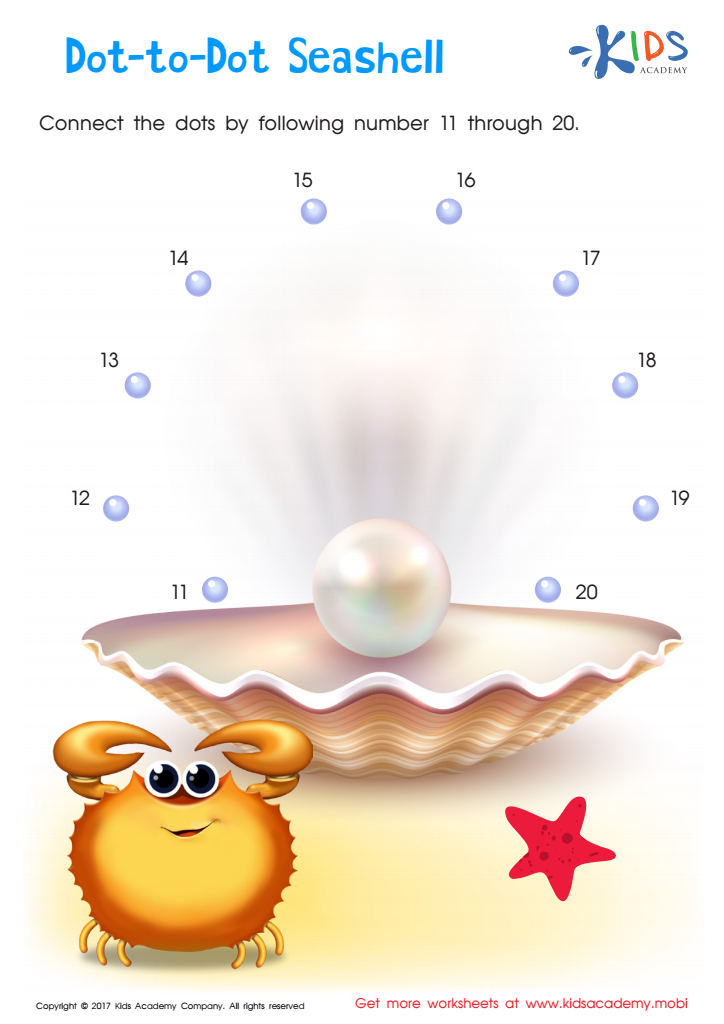

Ordering 11–20: Dot–to–dot Seashell Printable
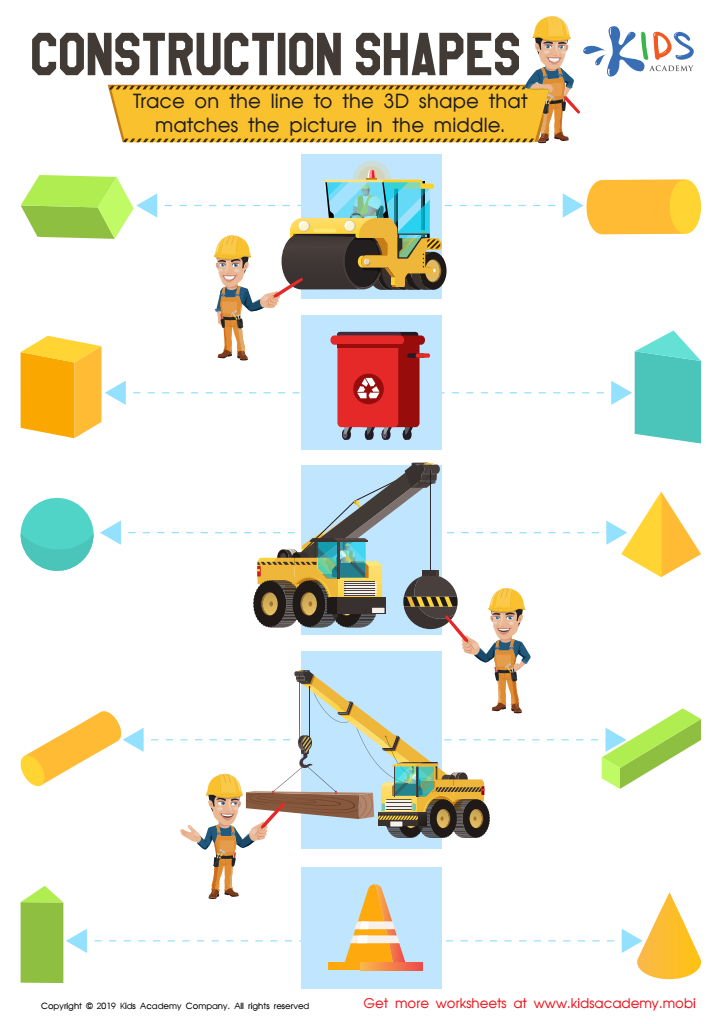

Construction Shapes Worksheet
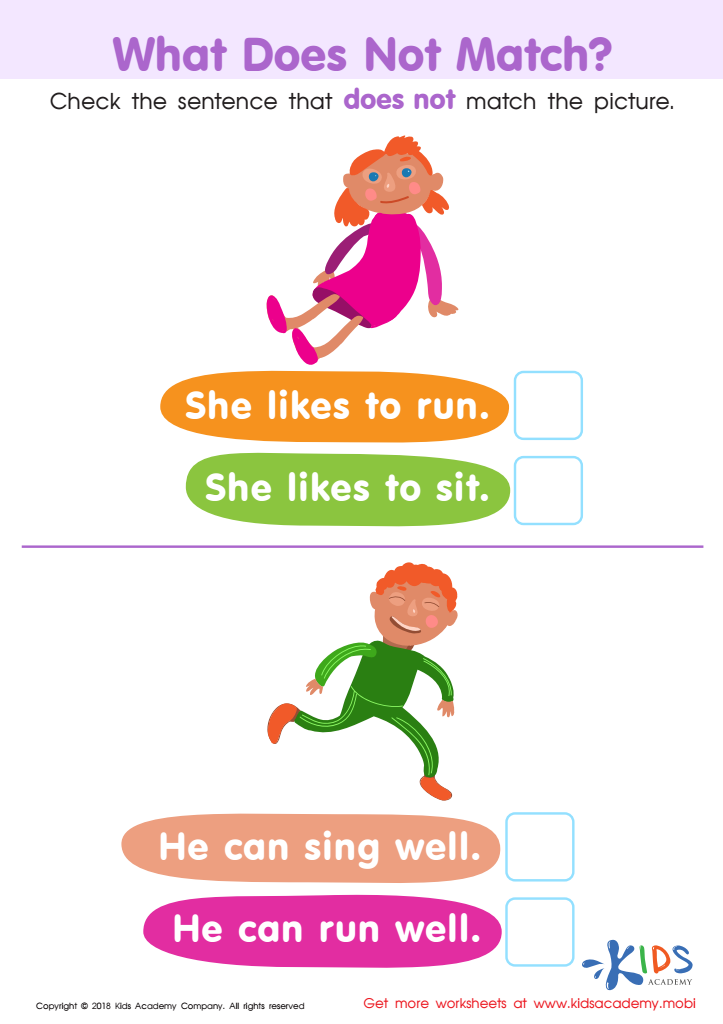

What Does Not Match? Worksheet
Shape recognition is a foundational skill that significantly impacts a child's cognitive development and academic success. For both parents and teachers, fostering shape recognition is crucial because it lays the groundwork for a variety of key learning areas.
Firstly, recognizing shapes is one of the earliest ways children start to distinguish one object from another, aiding in visual perception. This ability helps them make sense of the world and categorize what they see. When children understand shapes, they can also begin to understand letters and numbers, which are essentially combinations of different shapes. This is critical for early literacy and numeracy skills.
Furthermore, shape recognition enhances problem-solving abilities and spatial awareness. It encourages children to analyze how different shapes fit together, which is a skill used in both mathematics and engineering concepts. These experiences can make abstract concepts more concrete, fostering a deeper understanding of geometry and spatial relations.
Additionally, practicing shape recognition helps to fine-tune motor skills. Tasks that involve drawing, building, or sorting shapes require children to use their hands in precise ways, which strengthens hand-eye coordination.
Therefore, investing time and effort in teaching and reinforcing shape recognition is fundamental. It supports overall cognitive development, lays the foundation for academic skills, and enhances spatial and motor competencies, ensuring children are well-prepared for future learning challenges.
 Assign to My Students
Assign to My Students






